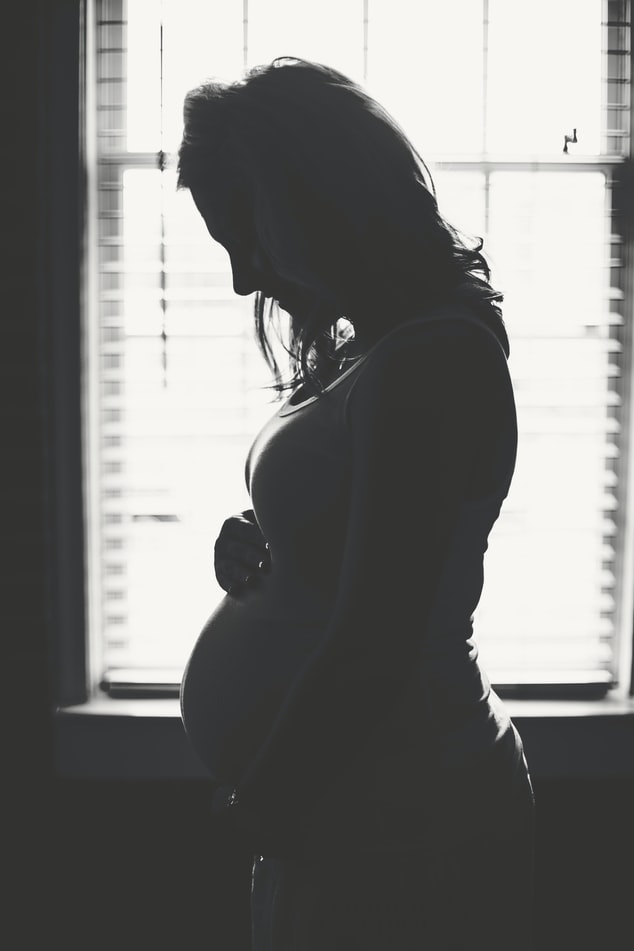Pregnancy
When Do Food Cravings Start in Pregnancy and What Do They Indicate?

Last Updated on November 5, 2025 by Joshua Isibor
Are you wondering when food cravings start in pregnancy and what it indicates? In this article, we will show you when it starts, when it reaches its peak, then starts to decline, and what it indicates.
First things first, pregnancy, a term that explains the period in which a fetus develops in the womb or uterus of a woman, is usually accompanied by a whole lot of changes. It lasts for about 40 weeks. As a result, it has three phases or trimesters. The first trimester runs from the 1st week to the 12th week, the second trimester runs from the 13th week to the 27th week, and the third trimester runs from the 28th week till delivery.
However, you should know that every phase has its peculiarities. During the first trimester, the fertilized egg begins to develop working organs, eyes, and ears. Consequently, this causes nausea, vomiting, fatigue, backaches, cramps, frequent urination, heartburn, increased sense of smell, and major food cravings.
Therefore, food cravings are not harmful or abnormal during pregnancy. What is important is making sure you eat a healthy and balanced diet that will aid the development of the fetus and the mother during and after the pregnancy. As you read on, we will explain in detail about food cravings, also known as pregnancy cravings.
What Are Food Cravings?
Food craving or selective hunger refers to a strong desire to consume a particular type of food at a particular time. They are usually sudden urges triggered by the brain because of the hormonal responses they receive. This is a major characteristic exhibited by pregnant women. Sometimes, cravings are for foods like chocolate, chips, salty or spicy foods, fruits, or even foods that were not hitherto eaten before pregnancy.
Also, pregnancy has a way of changing things, including diet. This majorly affects the comfort or satisfaction with certain foods during pregnancy. However, there is no known specific cause of food cravings during pregnancy. Most women have attributed it to some of these reasons:
• Changing hormones- progesterone, a pregnancy hormone, makes you feel hungrier
• Specific tastes
• Flavor combinations
• Fatigue
• Stress
• Nutritional deficiencies
• The comfort derived from food
• Underlying sickness or diseases like anemia or heartburn.
• Cultural influences
Therefore, responses to food cravings have not been static. Most women give in easily to food cravings during pregnancy. This goes a long way in affecting both the child and the mother.
Food cravings could be an indication of nutritional deficiencies. For instance, a craving for pickles is an indication of strong iron deficiency in the mother. These foods trigger haywire appetites at various times.
Food Aversions
This is a contradiction of food cravings. It refers to the dislike of foods that were eaten before by a mother during pregnancy. It is majorly common with red meat, sushi, and carbs. A pregnant woman may develop nausea and vomiting as a result of food aversions.
This is not strange, as it occurs in 90% of pregnant women. Some women have food preferences for tea, coffee, eggs, and fried foods, and their favorite foods and drinks are suddenly unappetizing and enticing to them.
You should also know that food cravings and aversion can be influenced by heredity. For instance, if your mother craved spicy or salty foods, there is a high tendency that you would do the same.
When Do Food Cravings Start During Pregnancy?
Food cravings start as early as two to five weeks into the first trimester of pregnancy. It is characterized by a rapid change in appetite. Also, it gets stronger in the second trimester and starts to decline in the third trimester.
Food cravings come in various degrees, shapes, types, and sizes; there is no sign-for-all experience. This is because humans are unique in their own way. These cravings do not just occur; they are usually triggered by factors like fatigue, heartburn, cramping, increased sense of smell, vomiting, and nausea.
Types Of Food Cravings During Pregnancy and What They Indicate
Here are some examples of the foods craved during pregnancy and their indications:
1. Sweet drops of Sugar like ice cream, popcorn, or potato chips indicate gestational diabetes
2. Ice- indicates inflammation in the tongue or mouth and anemia
3. Chocolate- indicates a deficiency of magnesium
4. Red Meat- indicates a deficiency of protein and Iron
5. Beans and Carbs- indicate a need for magnesium
6. Salty foods- indicates a need for sodium or more water
7. Pizza and Cheese- indicates a deficiency in fatty acid
You should know those food cravings are personal and can sometimes be very funny. So, you need to handle it carefully.
Can Food Cravings Become Harmful?
Food cravings can become harmful if it is targeted at harmful foods like dirt, chalk, soap, drugs, alcohol, and other non-food items. Consequently, it is important to see your doctor about it.
Additionally, it could be a symptom of Pica, a term used to describe a potentially poisonous and critical condition.
Healthy Replacements for Some Food Cravings During Pregnancy
The following are healthy foods that can be used to replace unhealthy cravings when pregnant:
1. Vitamin C, beans, lean meats, and dried fruit can be used to replace red meat
2. Fish and nuts like groundnut or cashew nuts can be used to replace chocolate
3. Water can be used to replace salty foods
4. Walnuts and fish can be used to replace cheese or pizza
5. Fruits and vegetables can replace sugar, sweet drops, and ice creams.
Tips on How to Handle Food Cravings During Pregnancy
Handling food cravings during pregnancy can be quite difficult, but it is possible. Here are some of the ways it can be handled:
1. Avoid unhealthy foods if that is what you are craving. It can adversely affect your health and that of the baby.
2. Carry out visual and engaging tasks like playing video games or drawing. This can help take your mind off food cravings for a while.
3. Increase the intake of fiber-rich diets and lean protein. This has the potential of curtailing your appetite.
4. Get plenty of sleep. This will go a long to relaxing your hormones and maintaining balance at all times
5. Avoid undercooked meat, raw eggs, and sushi. These foods can cause bacteria and warm growth. Consequently, this causes food cravings.
6. Stock up your kitchen with healthy foods and snacks
Conclusion
Having discussed food cravings during pregnancy and what they indicate, it is important that you deliberately avoid high salt, excess fat, and foods with high carbohydrate content. A steady intake of these foods can lead to excessive weight gain, gestational diabetes, and complications that can last after the birth of your baby. So, ensure you are always conscious of what you eat. Also, if it becomes excessive or overwhelming, seek advice from your doctor.
Finally, food cravings do not kill; they only last for a while and vanish when you don’t give in to them. You can always overcome them.
ALSO, READ 21 Useful Tips To Improve Your Chances Of Pregnancy
Reference
1. https://www.nhs.uk/start4life/pregnancy/pregnancy-faqs/
2. https://www.healthline.com/health/pregnancy/when-do-cravings-start
3. https://www.google.com/amp/s/www.insider.com/when-do-pregnancy-cravings-start%3famp?espv=1
4. https://www.google.com/amp/s/amp.flo.health/pregnancy/pregnancy-lifestyle/nutrition-and-weight/pregnancy-cravings?espv=1
5. https://www.google.com/amp/s/mommabe.com/when-do-pregnancy-cravings-start/amp/?espv=1
Originally posted 2020-12-02 11:25:35.

-

 Text Messages2 years ago
Text Messages2 years agoBEST LOVE CONFESSION MESSAGES FOR HER OR HIM
-

 Health4 months ago
Health4 months ago5 Unknown Ways To Maintain Skin Health
-

 Sex Education2 months ago
Sex Education2 months ago10 Simple Hack to Make a Girl Send Her Nudes
-

 Text Messages2 years ago
Text Messages2 years agoHappy Birthday Cousin, wishes and messages
-

 Text Messages2 years ago
Text Messages2 years agoHeart Touching RIP Uncle Quotes
-

 Uncategorized3 months ago
Uncategorized3 months agoHOW TO KISS A BOY FOR THE FIRST TIME
-

 Text Messages2 years ago
Text Messages2 years agoFreaky and Dirty Paragraphs For Him Copy And Paste Yahoo
-

 Text Messages2 years ago
Text Messages2 years agoBest Good Luck Wishes Before and After Surgery, for Family and Friends













